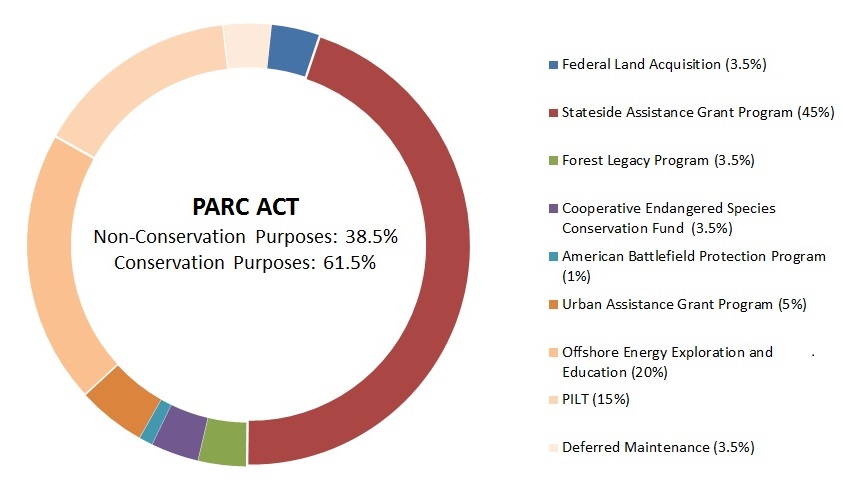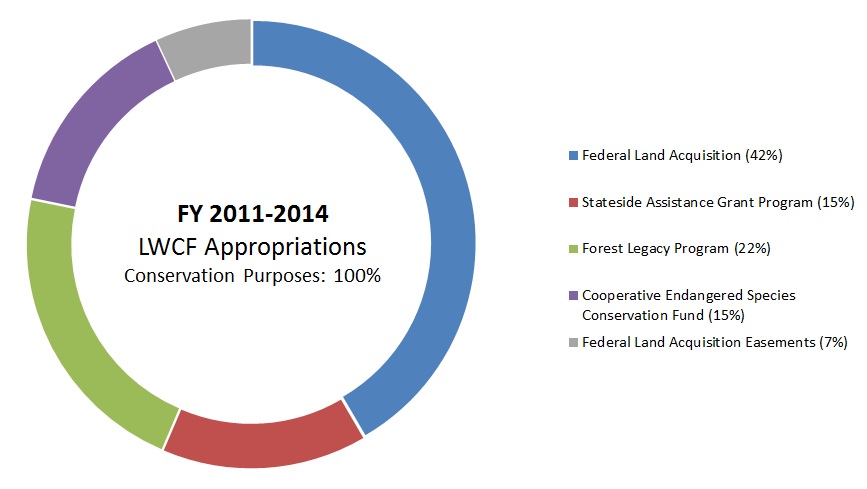House Republicans Continue to Stall on Efforts to Reauthorize LWCF, America’s Best Parks Program
After failing to reauthorize the Land and Water Conservation Fund (LWCF), our nation's most effective outdoor recreation and conservation grant program, Chairman Rob Bishop (R-Utah) released a discussion draft of his bill to rewrite the 50-year-old program. On November 18, 2015, the House Natural Resources Committee held a hearing on the “Protecting America’s Recreation and Conservation (PARC) Act,” the Republican proposal to eviscerate the Fund and change its purpose. Click here to view a recap of the hearing.
Chairman Bishop and his Republican colleagues allowed LWCF to expire for the first time in its history on September 30, 2015. Ranking Member Raúl M. Grijalva (D-Ariz.) has made numerous requests for a clean LWCF reauthorization and continues to urge a vote on H.R. 1814, his bipartisan bill to reauthorize the Fund, which has the support of 200 bipartisan cosponsors. Following the hearing, Democrats on the Committee used House rules to compel a second day of hearings on the importance of reauthorizing LWCF. That second hearing has not yet been scheduled.
Click here to view a side-by-side comparison of Chairman Bishop's and Ranking Member Grijalva's bills.
About LWCF
The LWCF has been a crucial tool for 50 years in conserving vital, iconic landscapes in every state. It is responsible for more than 40,000 state and local outdoor recreation projects, including playgrounds, parks, refuges, and baseball fields. Unlike many other programs, LWCF funds are derived from oil and gas receipts paid to the federal government by energy companies that extract publicly owned resources from the Outer Continental Shelf (OCS).
On September 30, 2015, Republicans in Congress allowed the fund to expire. The Republican shutdown of LWCF is depleting our conservation and outdoor recreation reserve funds. LWCF is losing approximately $2.5 million per day.
For more information on the history of LWCF, visit the Federal Lands page.
LWCF by the Numbers
LWCF has been used in almost every county and in every state. To view how much LWCF has invested in districts represented by members of the House Committee on Natural Resources, please visit the summary of LWCF Congressional District Profile.
Maps and graphs of LWCF grants given to states and counties represented by members of the Committtee are available here.
The Problems with Chairman Bishop’s PARC Act
The Discussion Draft reauthorizes the LWCF for only seven years and makes sweeping changes to the funding allocation formula. It authorizes spending on several new programs that do nothing to promote conservation and recreation, the intended purposes of the fund. It micro-manages the program and leaves Congress with very little discretion to determine year-to-year funding priorities.
Section 4 of the Discussion Draft eliminates the Fund’s 40 percent funding requirement for federal projects. Under the bill, just 3.5 percent of annual LWCF appropriations would be available for federal land acquisition, while 38.5 percent would be made available for non-conservation purposes. The Stateside Assistance Grant Program would receive a mandatory 45 percent of annual funding. The bill eliminates Congress’ ability to decide how best to spend LWCF money each year, as it has done for decades.
Under the bill, LWCF would be authorized to accumulate $900 million each year – as it already was before it expired. However, the funding would not be mandatory and would be subject to appropriation.
Summary of PARC Act LWCF Funding Allocations

Comparison of the PARC Act and FY 2011-2014 LWCF Appropriations


Ranking Member Grijalva’s LWCF Reauthorization Bill
H.R 1814, sponsored by Natural Resources Committee Ranking Member Grijalva, permanently reauthorizes LWCF and creates a set-aside of 1.5 percent to promote hunting, fishing and other recreational activities. The bill has 195 bipartisan cosponsors. The Senate companion, S. 338, has 15 cosponsors. Swift enactment will ensure the success of America’s most important conservation tool.
The hearing/mark-up request letters are attached below.
Related Files
Next Article Previous Article
